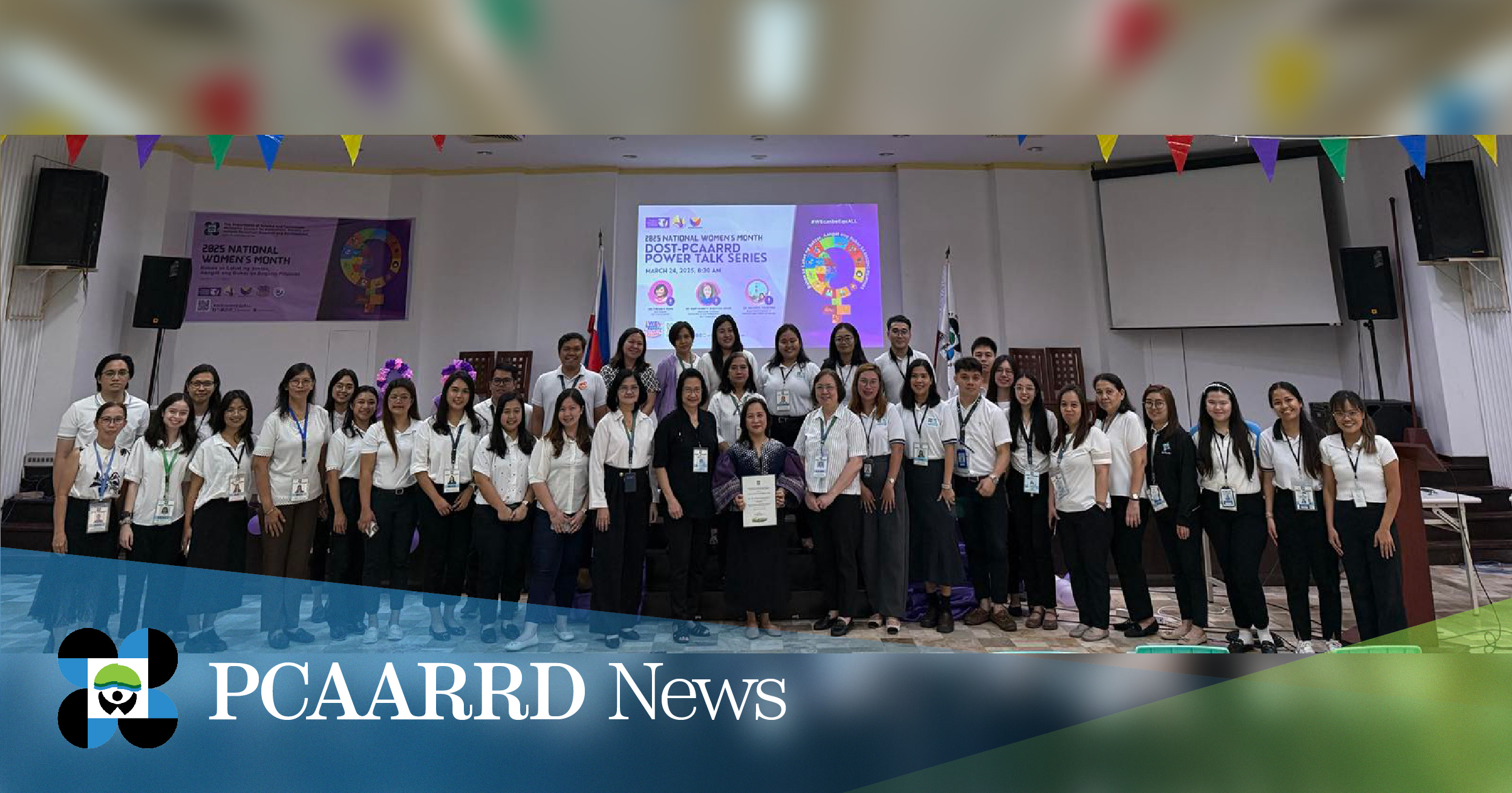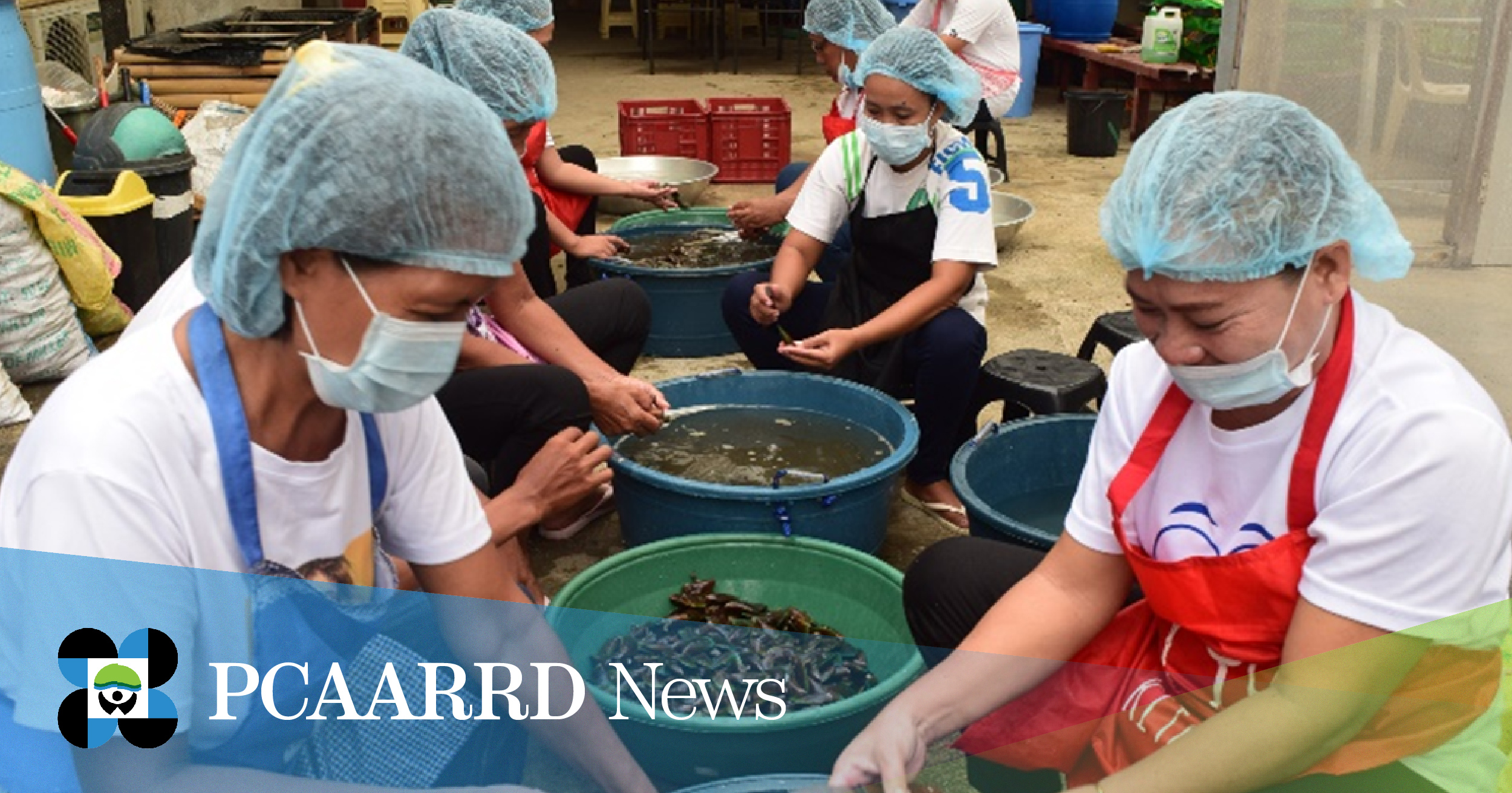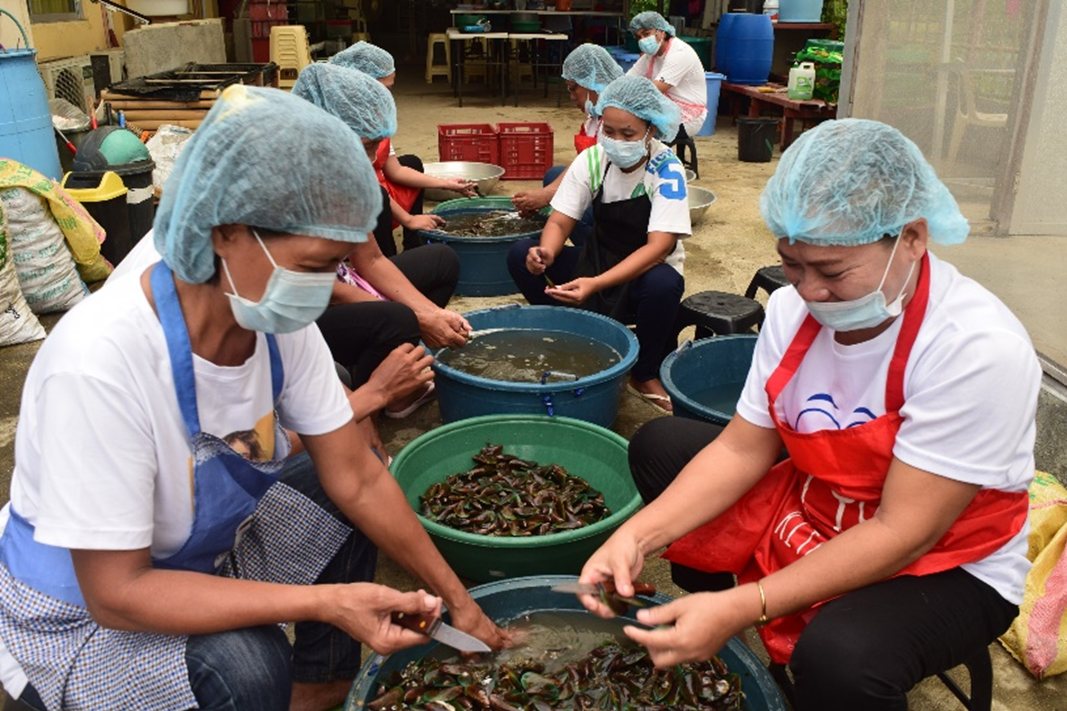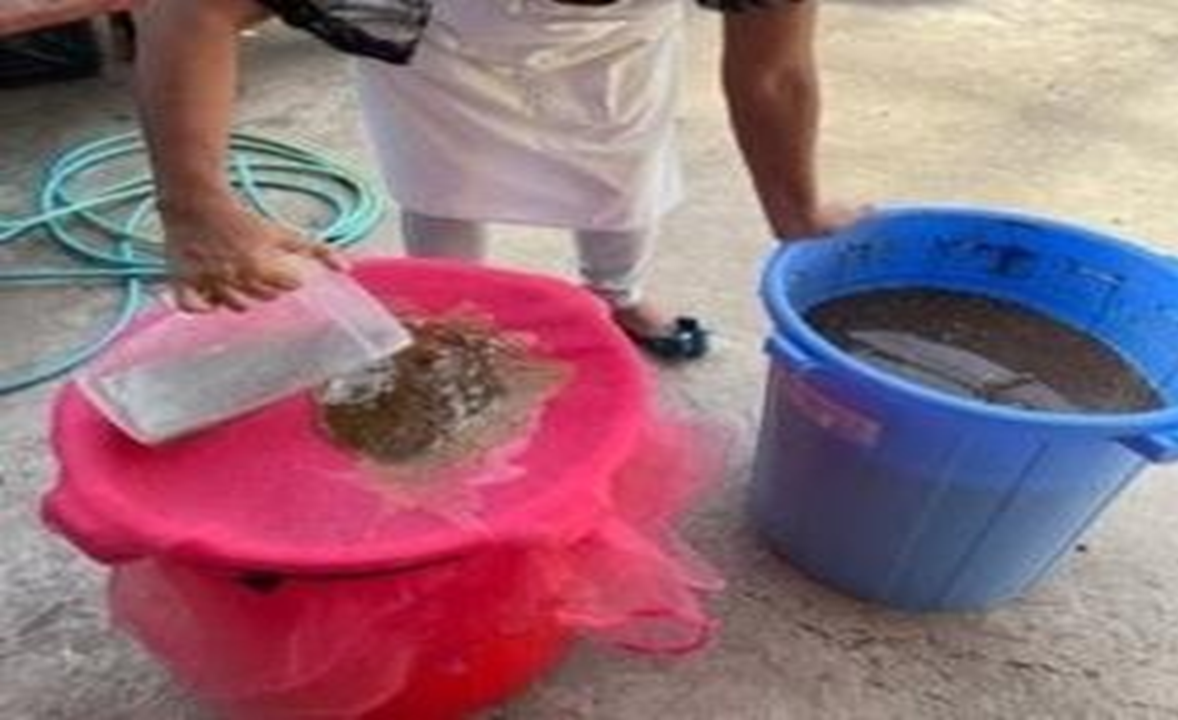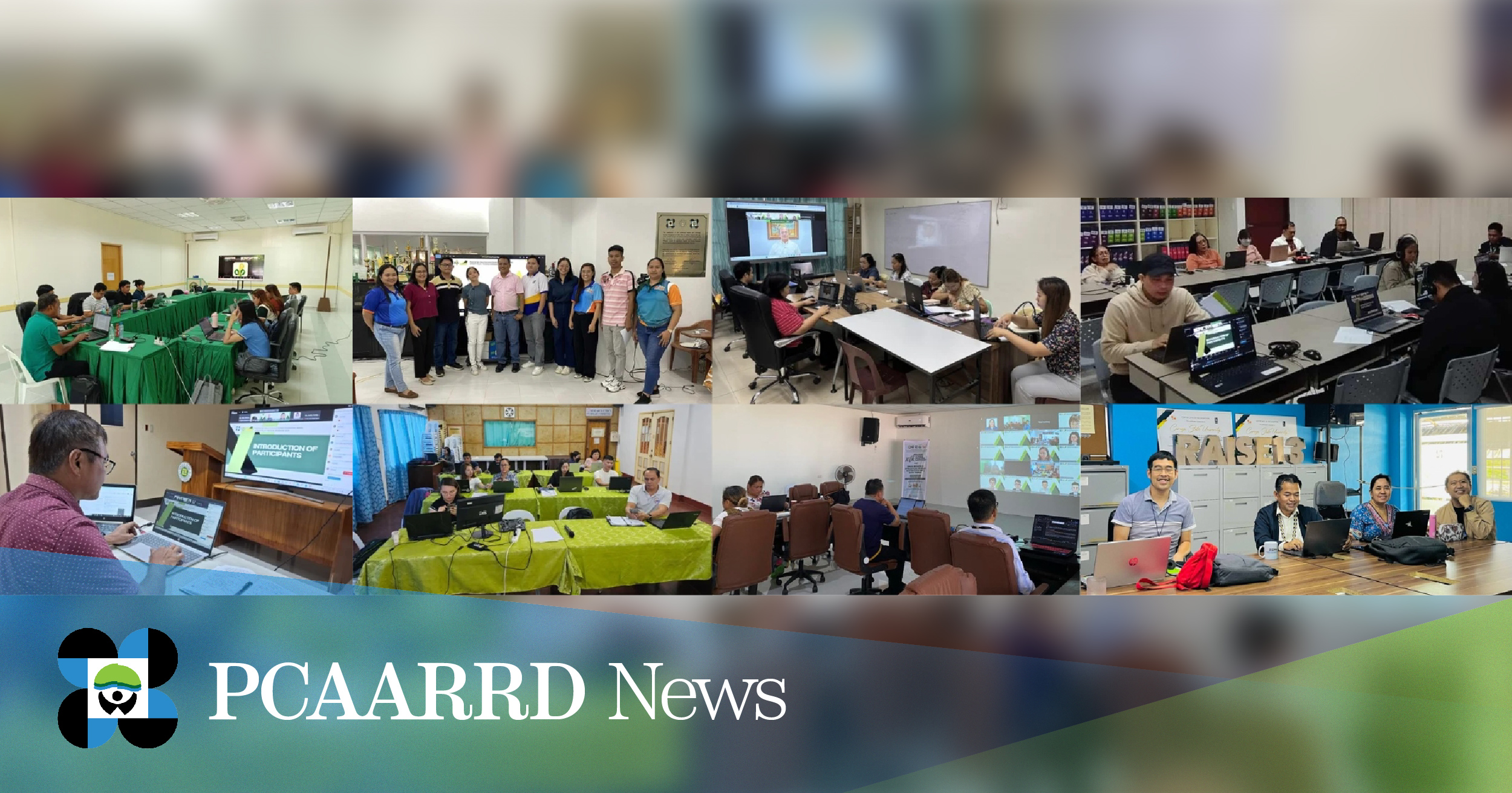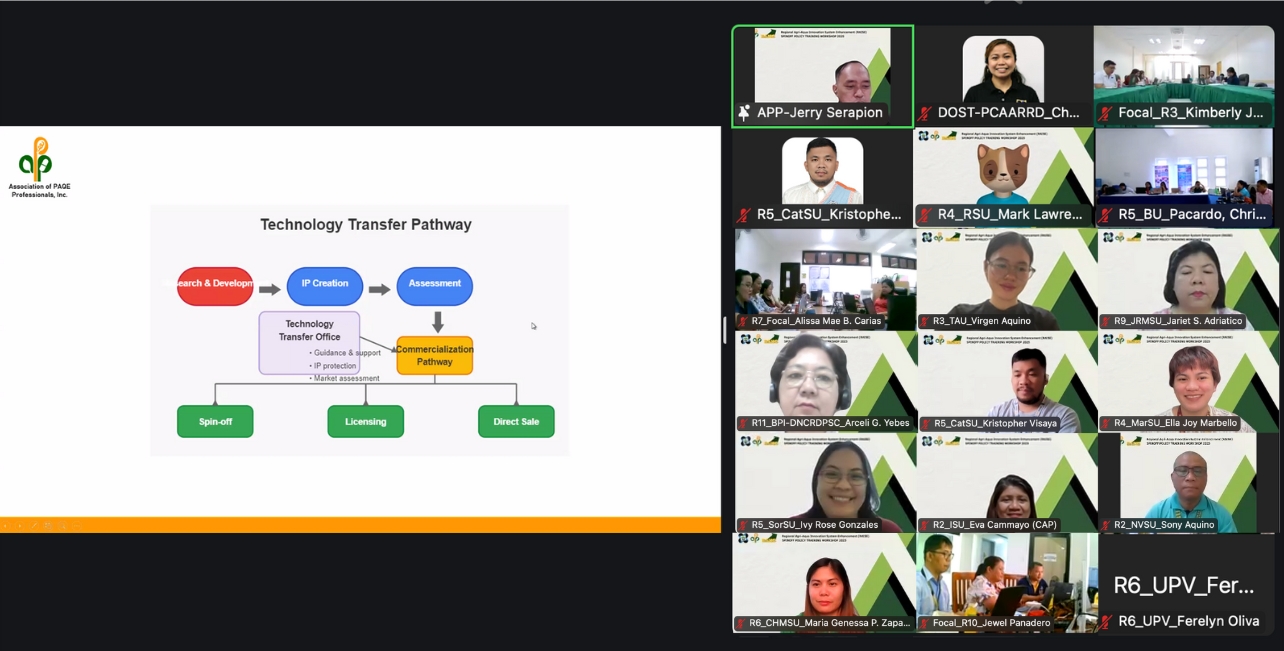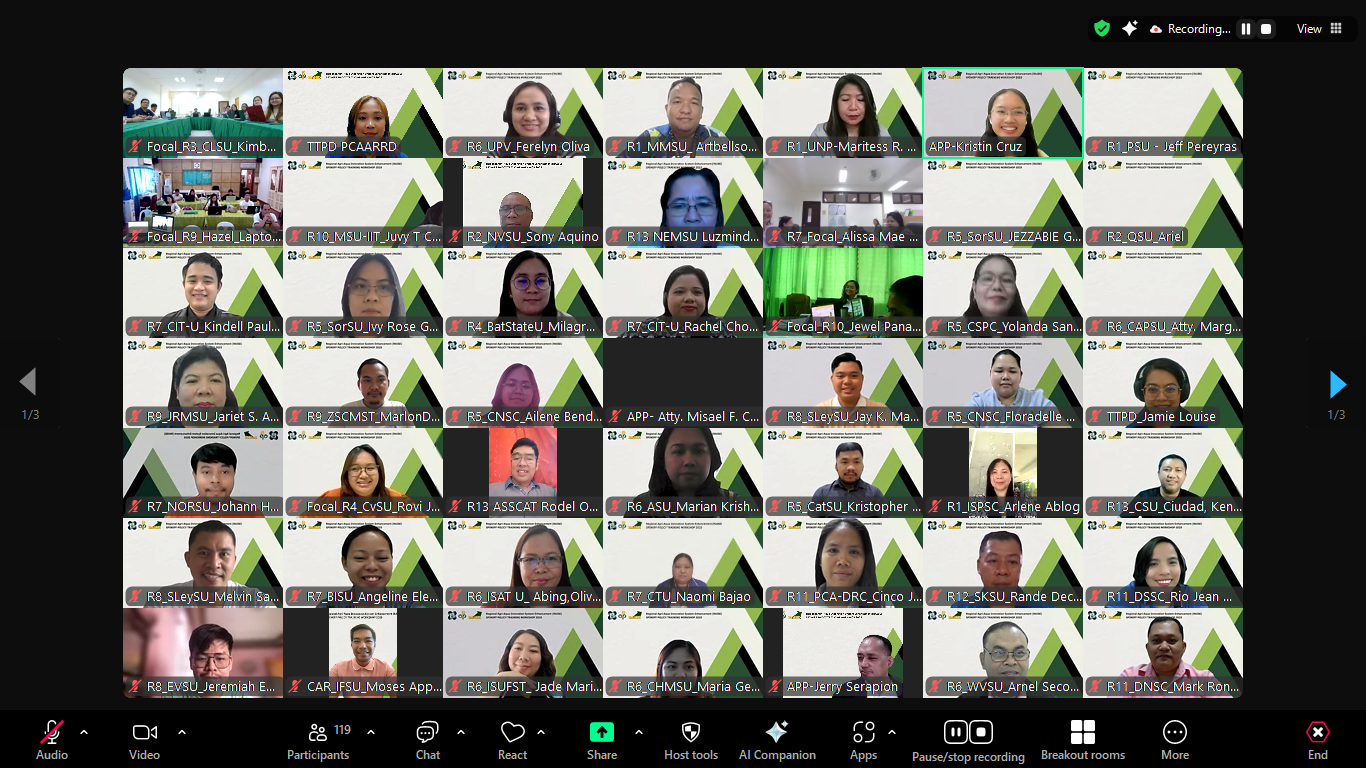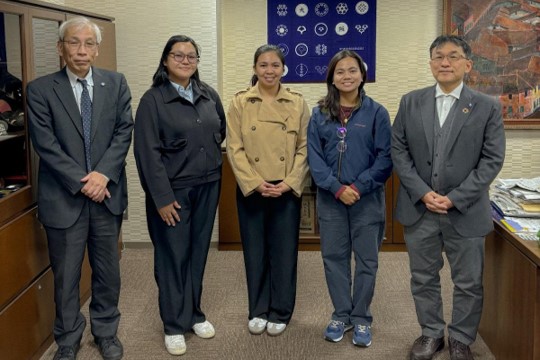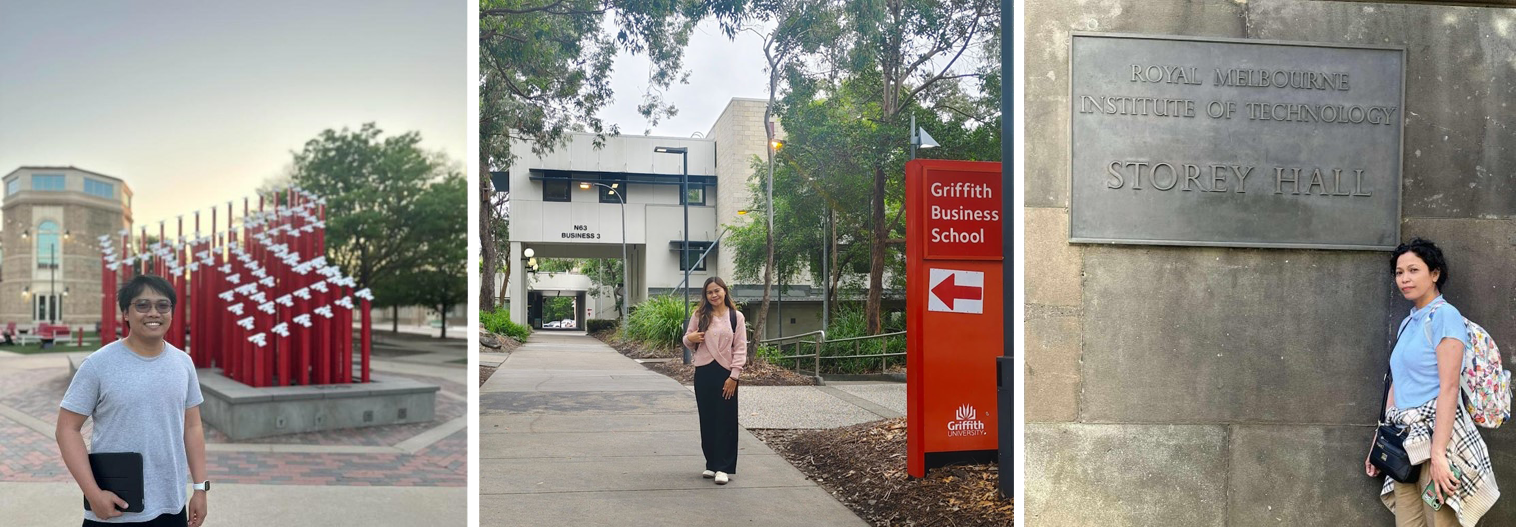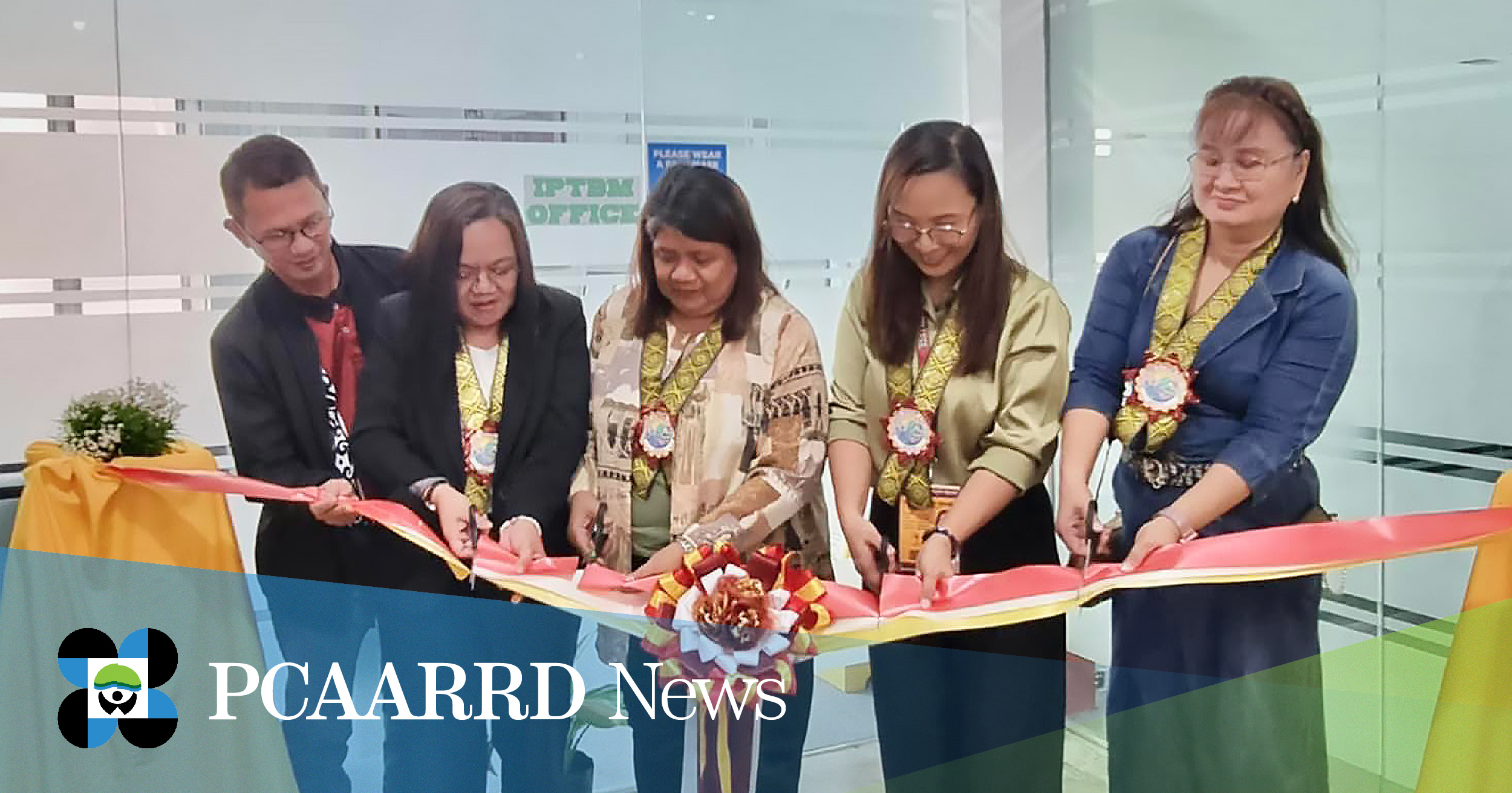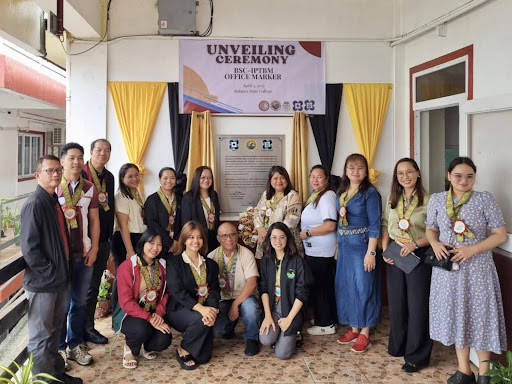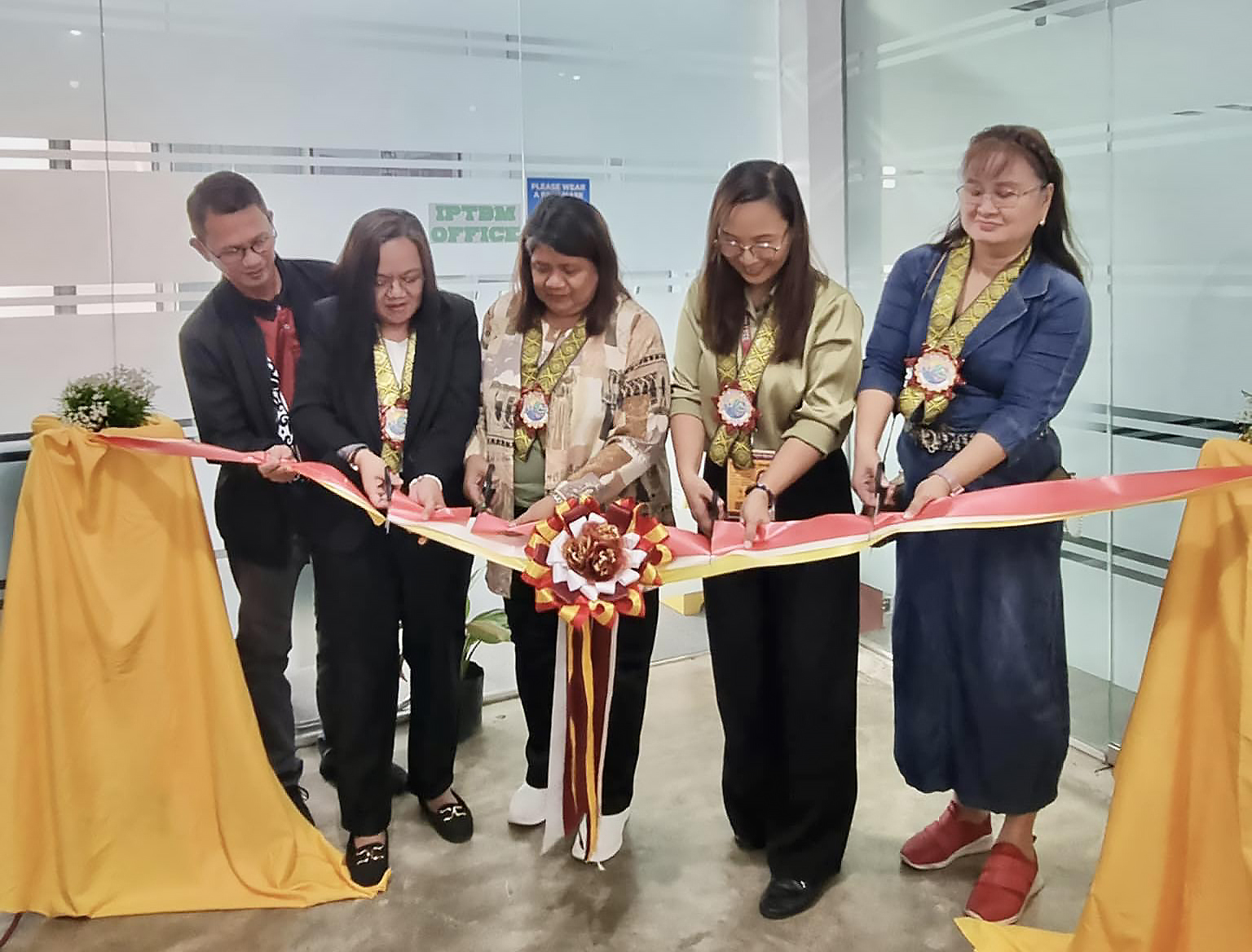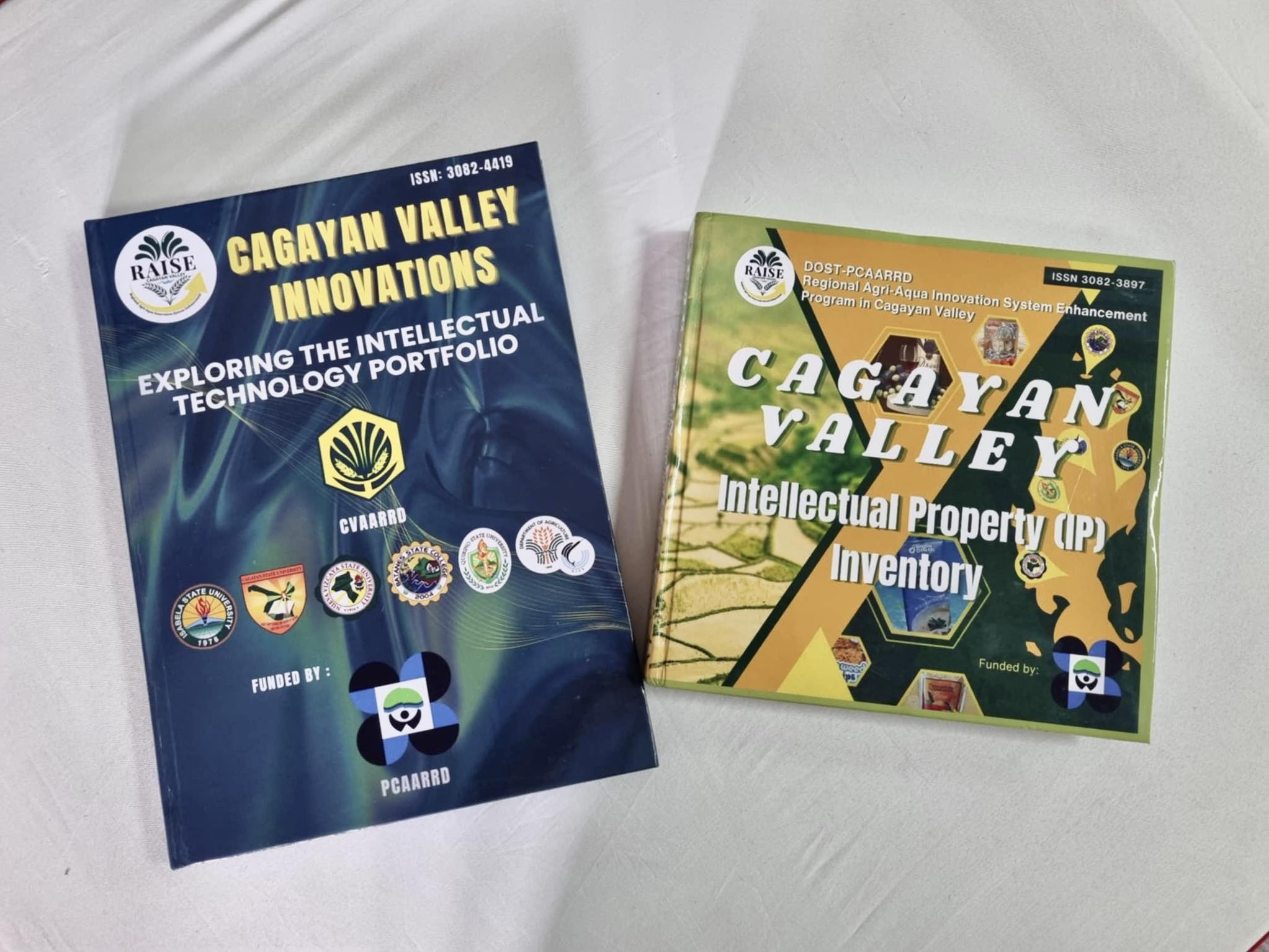In celebration of the National Women’s Month in 2025, the Philippine Council for Agriculture, Aquatic and Natural Resources Research and Development of the Department of Science and Technology (DOST-PCAARRD) launched a month-long series of activities to honor women in the agriculture, aquatic, and natural resources (AANR) sector. This year’s sub-theme, “Babae sa Lahat ng Sektor, Aangat ang Bukas sa Bagong Pilipinas,” served as a powerful call to reinforce gender equality and women empowerment across various sectors in the country.

During the campaign kickoff, DOST-PCAARRD Executive Director Reynaldo V. Ebora highlighted the gender and development (GAD) efforts of the Council and its commitment to gender integration in its programs, projects, and activities.
Dr. Ebora proudly shared that the Council has achieved Level 4: Commitment Enhancement and Institutionalization in the Philippine Commission on Women’s (PCW) Gender Mainstreaming Evaluation Framework (GMEF) — a testament to the Council’s continuous efforts to ensure long-term sustainability, impact, and success in responding to gender issues and concerns.
Power Talk Series: Women Empowerment in the AANR Sector
One of the highlights of the celebration was the Power Talk Series: Women Empowerment in AANR, which focused on gender mainstreaming strategies in the AANR sector. Held every Monday throughout March, the hybrid event featured distinguished GAD resource speakers.
Dr. Thelma R. Paris, former Social Scientist and Gender Specialist, shared her research experiences and highlighted the gender issues in the agriculture sector. On the other hand, Dr. Mary Barby P. Badayos-Jover, S&T Consultant and Associate Professor of the University of the Philippines Visayas (UPV), discussed the gender-related issues in the aquatic sector and emphasized the importance of gender equity and social inclusion in fisheries and aquaculture. Meanwhile, Dr. Melanie P. Tolentino, S&T Consultant and Associate Professor of Central Luzon State University (CLSU), provided insights on gender issues, the roles of women, and opportunities for women empowerment in the natural resources sector.
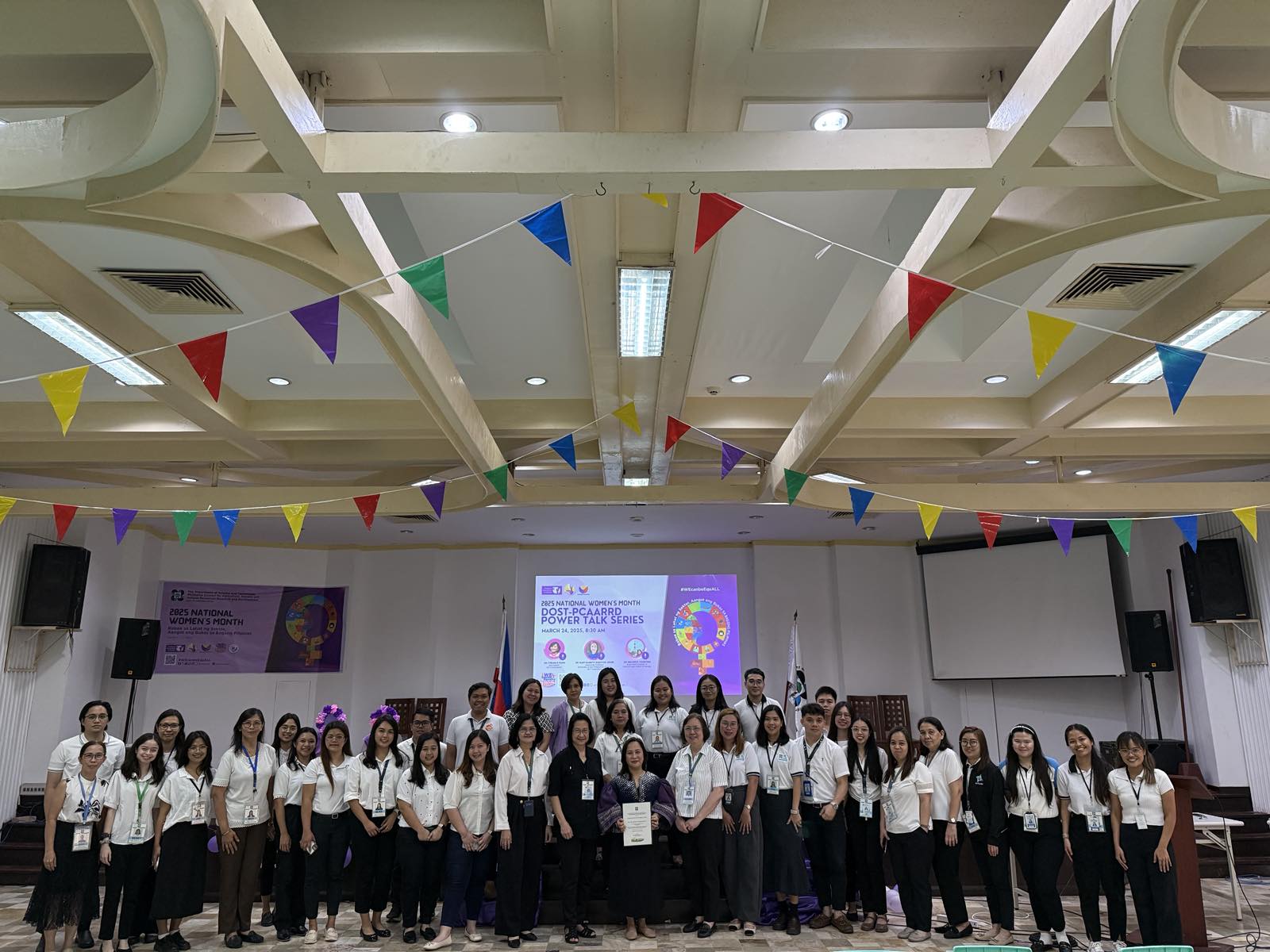
The Power Talk series gathered DOST agencies, PCAARRD staff, and PCAARRD Regional Consortia members, creating an avenue for discussing the relevant lessons and relatable stories of gender empowerment across the sector. Moreover, this activity highlighted gender mainstreaming strategies and the roles of each resource speaker as GAD champions of women empowerment in the AANR sector.
Orientation to Harmonized Gender and Development Guidelines (HGDG)
In its efforts to strengthen gender integration further, PCAARRD also conducted an online seminar on Bringing Harmonized Gender and Development Guidelines (HGDG) to PCAARRD Divisions. The session, led by Mr. King David Agreda, a National GAD Resource Pool Member from the Philippine Commission on Women (PCW), emphasized the importance of applying a gender lens when crafting and evaluating project proposals. The activity also introduced the roles of Industry Strategic S&T Program (ISP) and project managers in the Council’s GAD streamlining process. Agreda mentored participants on using the core elements of HGDG to design and implement gender-responsive programs and projects.
Through this capacity building initiative, DOST-PCAARRD aims to ensure that all its R&D and non-R&D programs are inclusive and equitable.
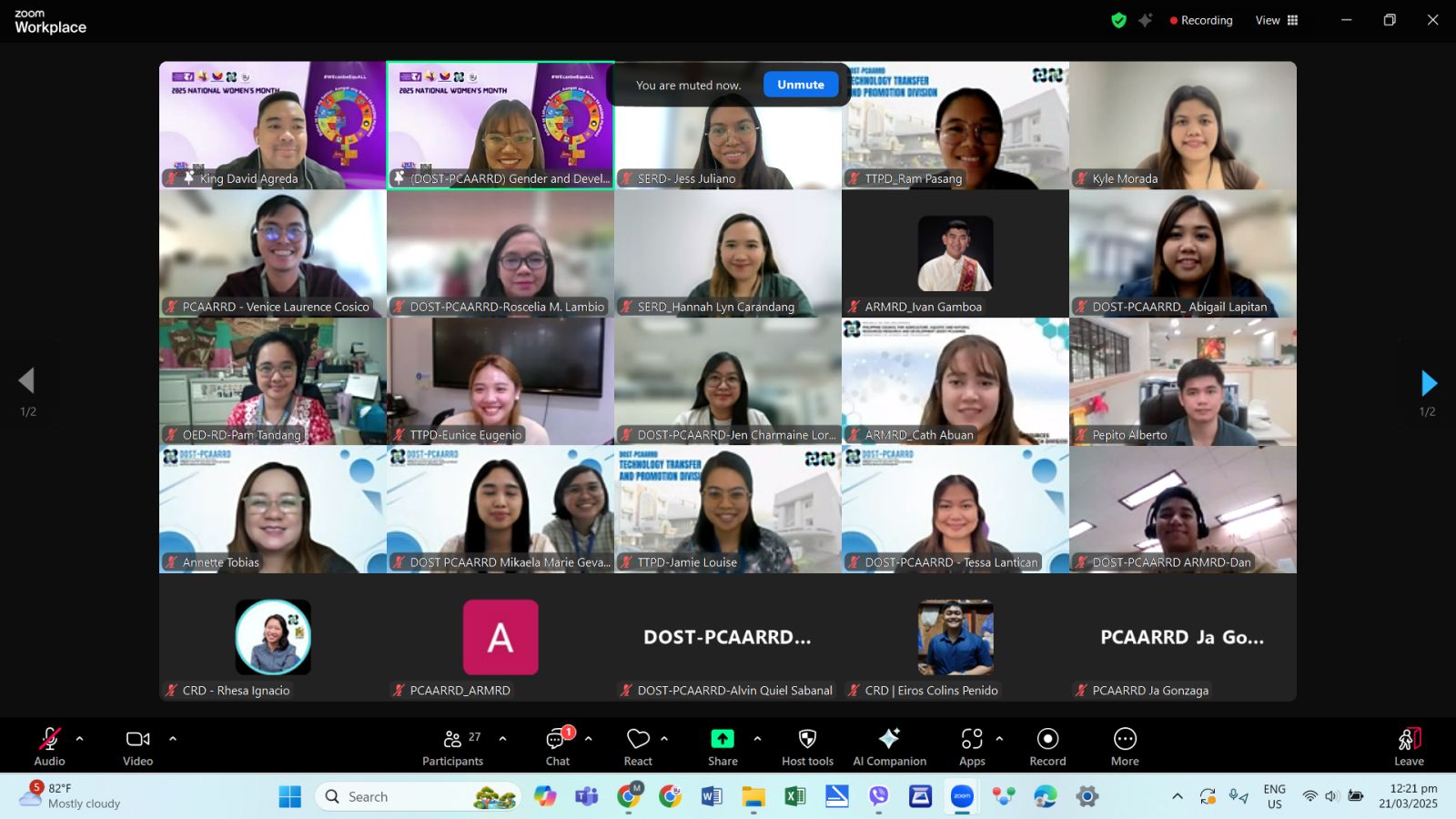
The Council also initiated a series of activities such as “Purple Wednesday,” a GAD information drive, and the “Purple Your Icon” campaign, to celebrate women’s month. This year’s activities were conducted through the initiative of the GAD Secretariat under SERD to show PCAARRD’s continuing support for an inclusive workplace and equal opportunities in the AANR sector.
Moving forward, DOST-PCAARRD plans to be more proactive in GAD concerns through the conduct of capacity building activities to continuously streamline gender mainstreaming, scale up gender responsiveness, and ensure GAD integration into PCAARRD programs, activities, and projects.

